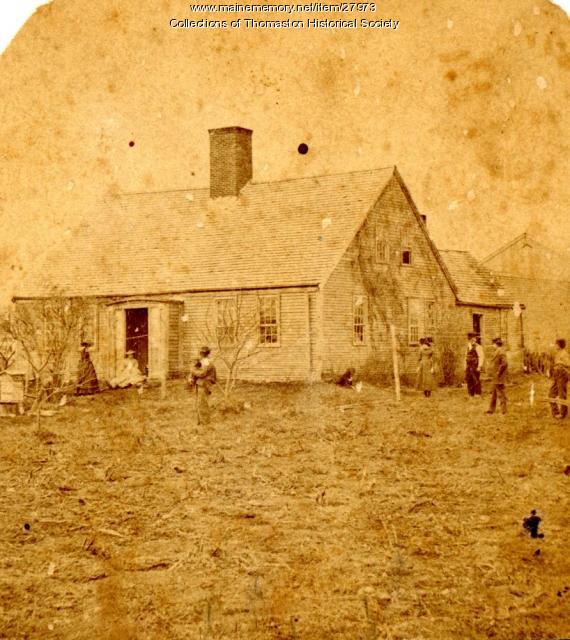Keywords: Slave trade
Item 102023
Thomas Robison from Thomas Hodges regarding illegal slave trade, Les Cayes, April 6, 1791
Contributed by: Maine Historical Society Date: 1791 Location: Portland; Les Cayes Media: Ink on paper
Item 103126
Benjamin Bullard to Sir William Pepperell on slave trading, Barbados, 1720
Contributed by: Maine Historical Society Date: 1720-03-15 Location: Bridgetown; Kittery Media: Ink on paper
Exhibit
The Life and Legacy of the George Tate Family
Captain George Tate, mast agent for the King of England from 1751 to the Revolutionary War, and his descendants helped shape the development of Portland (first known as Falmouth) through activities such as commerce, shipping, and real estate.
Exhibit
Maine Sweets: Confections and Confectioners
From chocolate to taffy, Mainers are inventive with our sweet treats. In addition to feeding our sweet tooth, it's also an economic driver for the state.
Site Page
John Martin: Expert Observer - Slave whip, 1864
"… "Scrap & Sketch Book" drew an illustration of two slave whips and a slave being whipped. Martin, a Bangor accountant and shopkeeper, wrote that he…"
Site Page
Thomaston: The Town that Went to Sea - Atticus: A Fugitive Slave
"Atticus: A Fugitive Slave In the spring of 1837, a carpenter named James Sagurs was hired by Captain Daniel Philbrook of Camden and Edward Kelleran…"
Story
Maine and the Atlantic World Slave Economy
by Seth Goldstein
How Maine's historic industries are tied to slavery
Lesson Plan
Black History and the History of Slavery in Maine
Grade Level: 6-8, 9-12, Postsecondary
Content Area: Social Studies
This lesson presents an overview of the history of the Black community in Maine and the U.S., including Black people who were enslaved in Maine, Maine’s connections to slavery and the slave trade, a look into the racism and discrimination many Black people in Maine have experienced, and highlights selected histories of Black people, demonstrating the longevity of their experiences and contributions to the community and culture in Maine.











